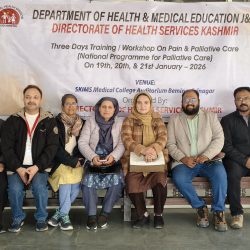World Health Assembly Resolution on PC Abstract 2014
WHA Resolution 2014
REQUESTS the Director-General:
- to ensure that palliative care is an integral component of all relevant global disease control and health system plans, including those relating to noncommunicable diseases and universal health coverage, as well as being included in country and regional cooperation plans;
- to update or develop, as appropriate, evidence-based guidelines and tools on palliation, including pain management options, in adults and children, including the development of WHO guidelines for the pharmacological treatment of pain, and ensure their adequate dissemination;
- to develop and strengthen, where appropriate, evidence-based guidelines on the integration of palliative care into national health systems, across disease groups and levels of care, that adequately address ethical issues related to the provision of comprehensive palliative care, such as equitable access, person-centred and respectful care, and community involvement, and to inform education in pain and symptom management and psychosocial support;
- to continue, through WHO’s Access to Controlled Medicines Programme, to support Member States in reviewing and improving national legislation and policies with the objective of ensuring balance between the prevention of misuse, diversion and trafficking of controlled substances and appropriate access to controlled medicines, in line with the United Nations international drug control conventions;
- to explore ways to increase the availability and accessibility of medicines used in palliative care through consultation with Member States and relevant networks and civil society, as well as other international stakeholders, as appropriate;
- to work with the International Narcotics Control Board, the United Nations Office on Drugs and Crime, health ministries and other relevant authorities in order to promote the availability and balanced control of controlled medicines for pain and symptom management;
- to further cooperate with the International Narcotics Control Board to support Member States in establishing accurate estimates in order to enable the availability of medicines for pain relief and palliative care, including through better implementation of the guidance on estimating requirements for substances under international control;1
- to collaborate with UNICEF and other relevant partners in the promotion and implementation of palliative care for children;
- to monitor the global situation of palliative care, evaluating the progress made in different initiatives and programmes in collaboration with Member States and international partners;
- to work with Member States to encourage adequate funding and improved cooperation for palliative care programmes and research initiatives, in particular in resource-poor countries, in line with the Programme budget 2014–2015, which addresses palliative care;
- to encourage research on models of palliative care that are effective in low- and middle-income countries, taking into consideration good practices;
- to report back to the Sixty-ninth World Health Assembly in 2016 on progress in the implementation of this resolution.






